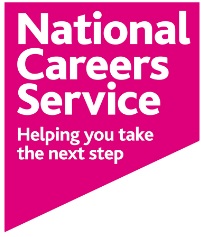 What’s it all about?
What’s it all about?
Being your own boss, working for yourself, running your own business, being self-employed, working as a sole trader or earning a bit extra on the side basically mean you are planning to earn your own income from the sale of your own product or service. You can do this full-time or part-time; and if you have the drive and the energy you can be self-employed alongside being employed by someone else.
For example: Tammy is employed to work Monday to Friday as a doctor’s receptionist. Her employer pays her a wage and pays her tax directly to HMRC (the tax man) through the PAYE system. Tammy is a talented dancer and at weekends she runs street-dance classes for local children. Each year she earns approximately £4,500 from these dance classes. Each year she completes a tax return, which she sends to HMRC, who tell her how much tax she needs to pay in total. Tammy is both employed and self-employed – this is permitted and is completely legal.
Self Employment
Working for yourself doesn’t suit everyone. Being self-employed can be challenging; for instance you are likely to work long hours, you will put lots of effort into activities that won’t earn you money and you will face set-backs, but if you make it work it can also be extremely rewarding.
If you have a product or service that other people would pay for then you have an opportunity to become self-employed – you could earn your own money without needing to be employed by someone else. If you like making your own decisions, aren’t afraid of hard work and have the backing of your friends and family then working for yourself could be a positive career choice.
So, what steps do you need to take to become self-employed?
1. Idea Testing
- Do you have a product or service in mind that people will repeatedly purchase?
- Who are your customers?
- Where is your marketplace?
- How will you promote the product/service?
- What price do you need to charge?
2. Reality Check
- Gather the experiences of other self-employed people
- Are friends/family on your side?
- Work out if you can afford to go full-time, part-time or run it as a hobby business (alongside a job)
- Are you passionate and totally committed to your idea?
- What barriers would you need to overcome?
3. Make a Plan
- Set personal objectives and identify your own financial goals
- Download an online business plan template (the Microsoft Office Red Business Plan template is very thorough)
- Identify your start-up costs (the money you need to begin your business)
- Establish a set of clear business targets
4. Start-Up Cash
- Own savings
- Friends and family loans
- Start-Up grants
- Business loans
- Crowdfunding
5. Begin
- Buy suitable business insurance – public liability as a minimum
- Register as self-employed with HMRC
- Obtain any licences you need before you start, for example a traders licence
- Prepare and maintain your ‘books’ – your records of all financial transactions
- Promote, promote and do more promotion
Recommendations
There is no ‘correct’ way to start working for yourself, but here are a few pitfalls to avoid and a few good ideas to incorporate:
- Build your business on a talent, a passion, a genuine interest or something you know and understand deeply – you need to be driven to make your business idea work in order to overcome the challenges and setbacks you will invariably encounter.
- Always be honest with yourself. If something isn’t working, change it – don’t just hope it will change, because if you do you will be waiting forever.
- Join an online business start-up network or a local one (if one exists in your area) and speak to others starting their own business – they might be a future customer or an invaluable supplier, but they certainly will understand the business start-up challenge you are taking on.
- Plan and research before you start, but not too much, because sometimes your instinct is correct and research only proves what you instinctively thought to be correct”
- Get independent advice about your idea as early in the start-up process as possible
- In the early stages of running your business draw the minimum out in wages
- Do not start your business until you have enough cash behind you. Having too little money in the bank to cover your costs of earning more will kill your business. Managing cash flow is very important.
- Always hold back some of your income for tax and cash flow purposes, e.g. if you generate £100 from the sale of soup at your local farmers’ market, keep £30 for tax, £20 for the cost of the next farmers’ market pitch and pay yourself £50.
- Recognise that all business activities come with a degree of risk. You probably cannot avoid risk, but you certainly can manage risk and reduce it if you look ahead.
- If you are working in a very busy and competitive marketplace, you need to put a lot of effort into ‘differentiating’ yourself (i.e. standing out from the crowd). You should not do this by being the cheapest, but by the uniqueness of your products, or your customer service, or the quality of your product, or through your marketing or your business’s values. People associate cheap prices with low quality – do you want customers to see your product or service in this way?
- Once you start, commit to your business and don’t treat it like a hobby. Dig in, work hard, set goals and achieve them.
- Enjoy earning your own money and making your own decisions.
- Build your business on repeat trade, i.e. customers buy once, buy again and again and again. Finding brand new customers can be hard work, so look after your customers and they will come back again, or if you are lucky they will recommend you to other people.
- Set annual goals and check regularly how you are progressing in relation to them
- Make friends with the people at HMRC – they are helpful, give great advice and want you to succeed
Useful Websites For Young People:
Shell LiveWire
Kent Foundation
Prince’s Trust
For Adults:
GOV.UK
Scope
The Camden Society
Age UK
Reed
Where to Get Career Advice
The National Careers Service provides free, up to date, impartial information, advice and guidance on careers, skills and the labour market in England to anyone aged 13 and upwards.
To speak to a National Careers Service adviser, call 0800 100 900 or use our webchat (8am to 10pm, 7 days a week)
Other Articles You May Find Useful

 What’s it all about?
What’s it all about? 